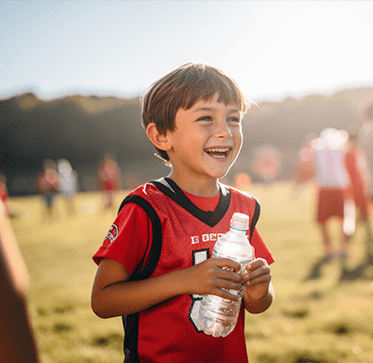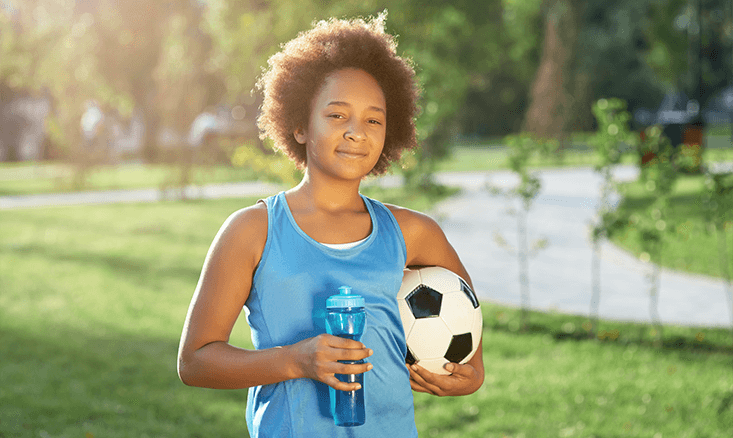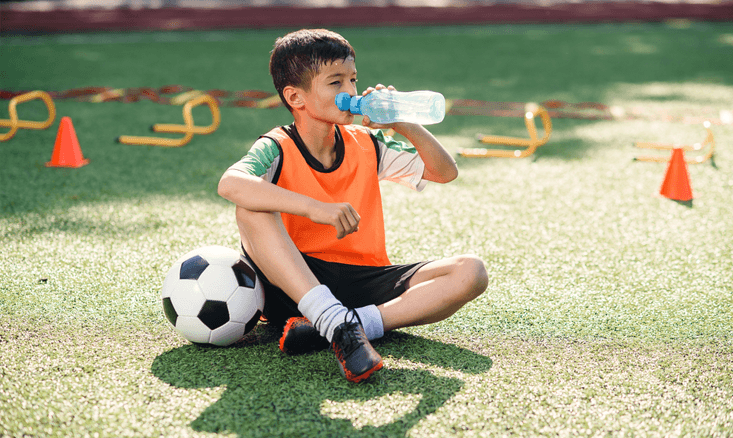The Importance of Team Culture in Post-Game Nutrition and Hydration

CRFC BLOGS
LATEST BLOGS & NEWSLETTERS
The Importance of Team Culture
in Post-Game Nutrition and Hydration
The Proven Benefits of Post-Soccer Game Nutrition and Hydration
Injury Prevention
Proper post-game nutrition and hydration help replenish glycogen stores, repair muscle tissue, and replace lost electrolytes. This is crucial in preventing injuries that can occur due to fatigue and nutrient deficiencies.
Enhanced Performance
Consistent recovery practices ensure that players are well-prepared for subsequent soccer training sessions and matches, leading to sustained high performance.
Faster Recovery
Adequate nutrition and hydration facilitate quicker recovery, allowing youth soccer players to train harder and more frequently without the risk of overtraining.

Learning from the Best: Top Athletes’ Practices
The Coach’s Role: Knowledge and Transfer
For a team to fully benefit from post-game recovery strategies, the coach must be knowledgeable and committed to transferring this knowledge to the players. Consistency and follow-through are critical.
Education
Coaches should educate players about the importance of post-game nutrition and hydration. This includes explaining the science behind why these practices are beneficial.
Availability of Resources
Ensuring that sports drinks, protein supplements, and recovery foods are readily available to players is crucial. This removes barriers to adherence and makes it easier for players to develop good habits.

Key Foods and Drinks for Post-Game Recovery
Sports Drinks
Help replenish electrolytes lost through sweat and are essential for soccer post-game hydration.
Protein Supplement Drinks
Aid in muscle repair and recovery, making them some of the best post-game recovery drink options.
Bagels with Peanut Butter
Provide a good balance of carbohydrates and protein, ideal for post-soccer game snacks.
Yogurt and Cottage Cheese
Rich in protein and easy to digest.
Nuts
Provide healthy fats and protein.
Protein Sport Bars
Convenient and nutrient-dense, making them an excellent choice for soccer post-game nutrition.
Milk (White or Chocolate)
Offers a balance of carbohydrates and protein, perfect for soccer game day nutrition.
Fruit Smoothies
Packed with vitamins, minerals, and natural sugars.
Chicken Wraps
Provide lean protein and carbohydrates for sustained energy, fitting the needs of a post-soccer game meal.
Strategies for Successful Implementation
Consistent Messaging
Reinforce the importance of soccer post-game nutrition and hydration in every training session and match briefing. Consistency in messaging helps ingrain these practices into the team culture.
Provide Resources
Make sure the necessary foods and drinks are available at all times. This can be done by coordinating with parents or having a team budget for recovery supplies.
Lead by Example
Coaches and team leaders should model good recovery practices. When younger players see their role models adhering to these routines, they are more likely to follow suit.
Regular Check-Ins
Periodically check in with players to ensure they are following the recommended recovery strategies. Address any barriers they might be facing and provide solutions.
Positive Reinforcement
Celebrate and acknowledge players who consistently follow the recovery routines. Positive reinforcement encourages others to adopt similar habits.

Conclusion
FAQs
What should soccer players eat for optimal nutrition after the game?
What’s the best electrolyte drink for soccer players?
How many calories are needed after playing soccer?
What’s the best way to rehydrate after a soccer game?
Is drinking milk beneficial after playing soccer?

Did you find this useful?


